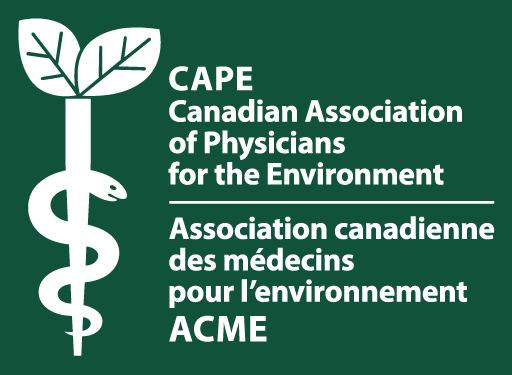By Robin Edger
Executive Director and CEO, CAPE
The COVID-19 pandemic has caused an unprecedented shift in how Canadians relate to their environments and to each other. The strain on our health – both physical and mental – has been incalculable.
Fortunately, nature offers a prescription we can use to fight the stress of physical distancing, isolation, and the emotional ups and downs many of us are experiencing as we navigate life in this “new normal.”
There is a growing body of evidence indicating that spending time outside in nature is one of the best things we can do for our well being. Several decades of research show that getting out in nature can improve our stress levels. People who spend at least two recreational hours per week in green spaces are more likely to report good health and psychological well-being. Other studies point to enhanced respiratory health and immune system function — which are crucial at this time.
The good news is that getting out in nature can be done safely if we keep a few simple tips in mind. We shared some of these tips an editorial published this weekend in the Vancouver Province, co-authored by CAPE Board Member Dr. Melissa Lem and myself. You can read it here.
For those who are symptom-free and not quarantining:
- Venturing outside for a walk, run, or bike ride is fine for symptom-free people as long as you keep a two metre distance from others at all times.
- Though the use of municipal park amenities like playgrounds and sports fields has been prohibited in many parts of the country, many trails and green spaces remain open to walk and wander.
- Choose uncrowded green spaces, not playgrounds or busy parks and beaches.
- When you hike or bike on trails, they must be wide enough to allow you to stay two metres away from others.
- Plan walking routes on treed side roads rather than main roads and visit out-of-the-way places, preferably during off-peak hours.
If you are quarantined or self-isolating:
- Seek nature in creative ways. Science reveals that what matters to our well-being is our perception that we’ve had a meaningful nature experience.
- Bring nature indoors or nearby through imagery, sounds, and house or balcony plants. Even looking at photos of videos of nature can provide a boost.
- Families who miss sleeping under the stars can plan camping trips in their backyards or living rooms.
Last but not least: funding and policy to safeguard and grow our parks and urban green spaces must be included in our plans that will chart our way to economic recovery and health through COVID-19.
CAPE will continue to advocate on your behalf for these policies that put your health – and the health of our environment – first. To that end, please consider donating to CAPE today, so we can continue working on your behalf for a healthier tomorrow. Like so many other charities, we have been hard hit by the COVID-19 economic slowdown, and every dollar counts.
And, if you’re out in nature in the coming days and weeks, we’d love if you could tag us in your photos and use the hashtag #HealthyByNature, so we can share your story of how nature is helping you to stay well in this challenging time.
Robin Edger
Executive Director and CEO
CAPE
Donate to CAPE today
